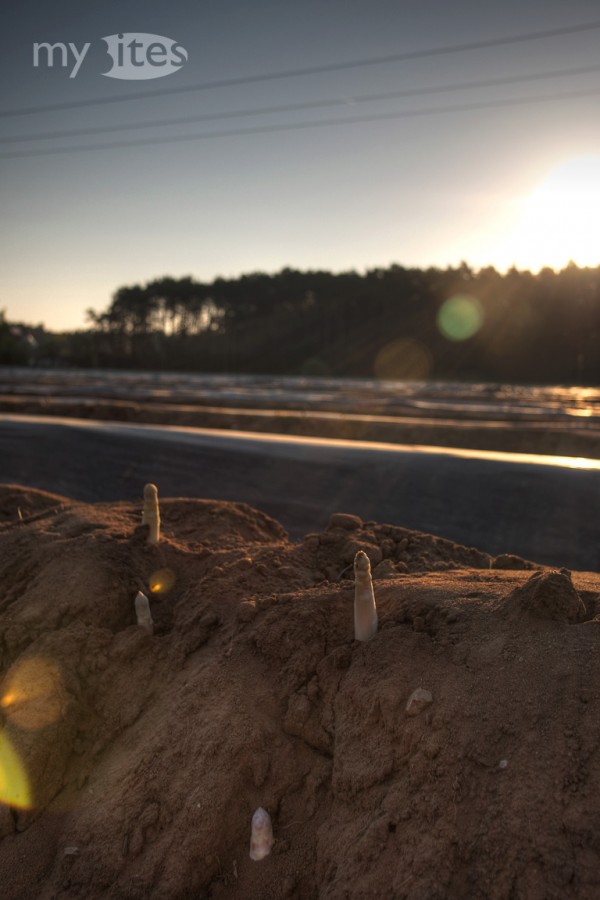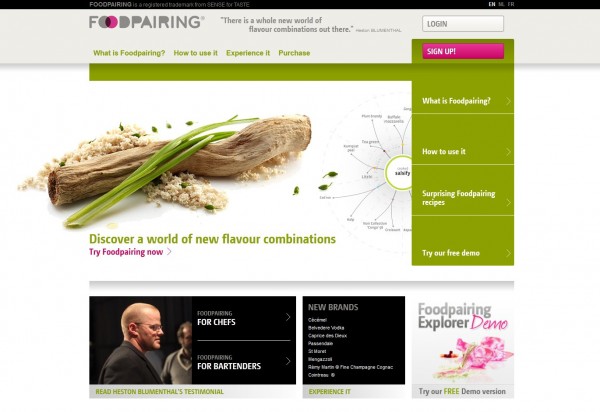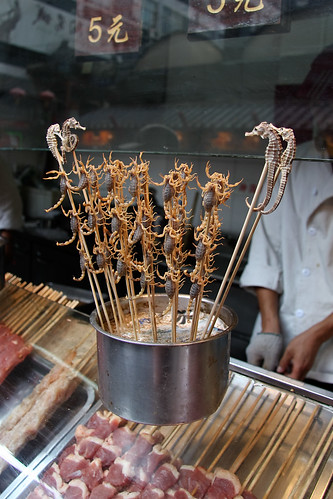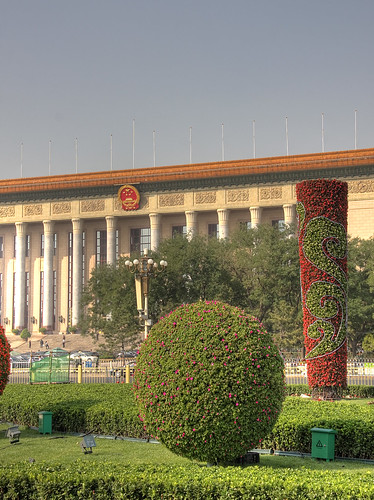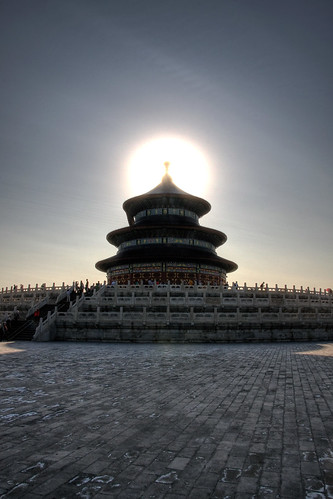5am. The sun is slowly rising from the horizon. Birds sing free and undisturbed by traffic noise. Everything is calm and quiet, almost nobody is on its feet at this time of day. Except for the asparagus pickers. After uncovering the ridges, they start searching for asparagus tips which barely reach the surface. It’s a hard, yet filigree work. I wanted to learn how asparagus is actually grown and harvested, so I visited my asparagus farmer – the Reinhardt family – on an early morning to join them in the picking process and to learn more about the king of spring vegetables firsthand.
Category Archives: Reviews
Foodpairing – A Review
Foodpairing has been one of my major sources for inspiration in the last few years. In contrast to my other most favorite reference – the Flavor Bible, which lists compatible ingredients based on past menues and recommendations of chefs – Foodpairing extracts pairings based on the chemical flavor components of foods and drinks. The more similar the chemical composition of two ingredients, the more likely they can be combined in a dish as well. Probably one of the most well known weird combinations based on chemical compounds is caviar with white chocolate by Heston Blumenthal. Though, now with the help of the renewed Foodpairing website the possibilities for novel flavor pairings are limitless.
Science & Cooking
Between Christmas and New Year’s Eve there’s usually a gap of 1-2 days of free time. You can either get active and enjoy the snow, wrap yourself in warm blankets and watch movies or read a book. It’s also a great opportunity to finally get on with long postponed activities. If you love to cook, this suddenly available free time allows you to further train yourself either by trying new techniques in the kitchen, or by reading good cookbooks and watching lectures given by chefs.
Harvard had a very good course called Science and Cooking this autumn featuring many modern techniques and the most influential chefs of our time. The lectures are a mix of theoretical background information presented by scientists and a practical experience demonstrated by chefs. The theory is presented in the first 15-20 minutes of the lectures by David Weitz (physics professor at Harvard) and Harold McGee, who is well known for his revolutionary book On Food and Cooking. Afterwards the greatest chefs of our time such as Grant Achatz, Joan Roca and Ferran Adria demonstrate the physics discussed before by applying several modern cooking techniques.
Eating Out in Beijing
The importance of food in China is well pictured in one of their greetings, which translates to “have you eaten?”. Eating opportunities are all over the city, and even if there is no restaurant or food stand nearby, there will be a trailer or grill at the corner serving cooked, roasted or raw delicacies. I’m open to any new experiences so I wanted to try everything the locals eat too. This article sums up my food related adventures in Beijing.
Beijing City Tour and the Great Wall
After a successful presentation at the conference, we had the whole Friday and Saturday to discover Beijing. Probably all travel guides will tell you to arrive at sights as early in the morning as possible, because they all tend to get very crowded. So our first destination early on Friday morning was the Tiananmen Square and the Forbidden City. The best way to approach the world’s largest square is from Qianmen subway station. Although the events of 1989 are taboo and heavily censored in China, you can still feel the consequences of the student protest. Just to enter the square you have to go through security checks, for some sights you even have to get rid of any bags and every pocket is double-checked by guards. Additionally, the square is full of security cameras. Well, Beijing itself is full of cameras too, but at the Tiananmen Square the number of security cameras is even more pressing – most lanterns have 6 to 8 cameras gazing in every direction.
Beijing: The First Impressions
Only 20 years ago Beijing was mocked being the largest village in the world. After a rapid restructuring of the city and finally due to the 2008 Summer Olympic Games, Beijing quickly evolved to a modern cosmopolitan city. Fortunately, the city managed to keep its charm.
